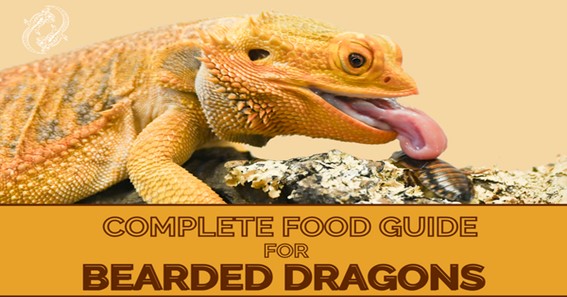Bearded dragons, also known as Pogona vitticeps, are fascinating and captivating reptiles that have gained immense popularity as pets. These unique creatures are native to Australia and are known for their distinct appearance, gentle demeanor, and relatively easy care requirements. One of the key factors in ensuring the well-being and vitality of your beaded dragon is providing a proper and balanced bearded dragon food. In this comprehensive guide, we will delve into the essential nutritional needs of beaded dragons and offer valuable feeding tips to help you become a responsible and knowledgeable owner.
Understanding the Nutritional Needs of Beaded Dragons
Just like any other living creature, beaded dragons require a specific set of nutrients to thrive. These nutrients play a crucial role in maintaining their overall health, growth, and energy levels. The following components make up the foundation of a beaded dragon’s nutritional requirements:
1. Protein: Protein is essential for the growth and development of beaded dragons, especially during their early stages of life. Insects such as crickets, mealworms, dubia roaches, and silkworms are excellent sources of protein. Remember to provide a variety of insects to ensure a diverse nutrient intake.
2. Vegetables: Leafy greens and vegetables are vital for providing essential vitamins and minerals. Offer a mix of options such as kale, collard greens, mustard greens, and bell peppers. These vegetables contribute to hydration, aid digestion, and promote overall well-being.
3. Calcium: Calcium is critical for maintaining strong bones and preventing metabolic bone disease. Dusting insects with a calcium supplement before feeding them to your beaded dragon helps ensure they receive the necessary amount of this vital mineral.
4. Vitamins: Vitamins, such as vitamin D3, are necessary for proper calcium absorption. Adequate exposure to natural sunlight or the use of UVB lighting in their enclosure helps beaded dragons synthesize vitamin D3, which in turn aids in maintaining their overall health.
5. Hydration: Proper hydration is key to the well-being of beaded dragons. Provide a shallow water dish that allows them to soak and drink as needed. Mist their enclosure to maintain humidity levels, especially for younger dragons that are prone to dehydration.
Feeding Tips for Beaded Dragons
1. Age Matters: The age of your beaded dragon influences its dietary requirements. Younger dragons have a higher protein intake, while adult dragons require more vegetables and fewer insects. Adjust the ratio of insects to vegetables as your dragon grows.
2. Variety is Key: Offer a diverse range of insects and vegetables to ensure a well-rounded diet. This not only provides essential nutrients but also keeps your dragon interested in its food.
3. Gut Loading: Prior to feeding insects to your dragon, provide them with nutritious foods to enhance their nutritional value. Gut-loading ensures that your dragon receives the maximum benefit from its prey.
4. Dusting: Supplement insects with calcium and vitamins by dusting them before feeding. This practice helps prevent calcium deficiencies and ensures your dragon’s overall health.
5. Monitor and Adjust: Pay close attention to your dragon’s eating habits, weight, and overall behavior. Adjust its diet as needed to maintain a healthy weight and prevent overfeeding or underfeeding.
Conclusion
Providing proper nutrition is a cornerstone of responsible beaded dragon ownership. By understanding their nutritional needs and implementing the feeding tips mentioned above, you can contribute to the longevity and well-being of these captivating reptiles. Remember that each dragon is unique, so observing their behavior and consulting with a veterinarian experienced in reptile care can provide valuable insights tailored to your pet’s specific requirements. With a well-balanced and nutritious diet, your beaded dragon can thrive and bring joy to your life for years to come.
